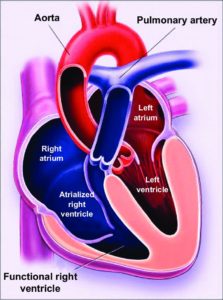Introduction
- Chronic alcoholism is a disorder in which a person has a strong desire for alcohol, drinks too much too often in a greater amount that is 8 drinks or more per week for women and 15 or more for men, and is unable to control the craving or stop his or her drinking because of the withdrawal symptoms that occur after stopping alcohol use.
- Alcohol dependence affects physical, mental, and social wellbeing causing problems with family, friends, and work because he or she cannot get through his or her daily activities without drinking. Such a person often lies about drinking or drinks without others knowing about it.
- It also increases the risk of several types of cancer and other serious health conditions. These conditions can be disruptive and life-threatening.
- In the United States, about 18 million people struggle with alcohol use health disorders.
Risk factors for developing dependency
- Family history
- Drinking at an early age
- Peer pressure
- Drinking too much on a regular basis
- History of trauma (such as the death of a close person or family members)
- Depression and mental health problems
- Social and cultural factors
Symptoms and signs of alcohol dependency
- Slurred speech
- Slowing of reflexes
- Unable to control bodily movements causing accidents, falls or drowning
- Difficulty in concentration
- Amnesia or episodes of blackouts
- Poor decision-making abilities
- Neglecting personal hygiene
- Risky and aggressive behavior
- Breathing difficulties
- Suicidal tendency
Health disorders occurring from chronic alcohol consumption
- Alcohol poisoning
- Sexual dysfunction
- Gastric and duodenal ulcers
- Liver cirrhosis and liver failure
- Pancreatitis
- Vitamin B-1 (thiamin) deficiency (Wernicke-Korsakoff syndrome that causes confusion, vision changes, or memory loss)
- Osteoporosis
- Dementia
- Cardiovascular diseases
- Angina
- Stroke
- Heart failure
- Hypertension
- Cancers of mouth, esophagus, larynx, stomach, liver, pancreas, colon, rectum, and breast
- A weak immune system increasing the risk of pneumonia, tuberculosis (TB), and HIV infection
- Miscarriage
- Birth defects such as fetal alcohol syndrome
The social and economic impact of chronic alcoholism
- Alcohol consumption can cause severe economic consequences, particularly for the poor such as
- impaired concentration on work
- poor performances
- lower wages
- absence from work
- lost employment opportunities and
- an increase in medical expenses leading to low productivity.
- It increases the risk of the suicidal tendency among teens and adolescents
- Premature mortality is also increased due to alcohol dependence among women
- Interpersonal relationships are also affected due to uncontrolled behavior that often leads to divorce, domestic abuse, etc.
Alcohol withdrawal symptoms
When a chronic alcoholic person suddenly stops or reduces alcohol intake, he or she develops alcohol withdrawal symptoms. It can occur 2 hours after the last drink and reaches peak within the first 24-48 hours upon cessation.
First 12 hours after last drink
- Nausea
- Vomiting
- Headaches
- Agitation
- Anxiety
- Shaking
Within 12-24 hours
- Tremors
- Disorientation
- Dehydration
- Sweating
After 48 hours
- Insomnia
- Seizures
- Irregular heart rates
- Confusions
- Hallucinations
- High fever
- Delirium tremens
- It is a severe form of withdrawal symptoms causing visual/auditory hallucinations, delusions, confusion, impaired attention, aggressiveness, seizures that can be life-threatening and need immediate management by sedation or hospitalization
Management of chronic alcoholism
- Limit alcohol intake
- women- not more than 1 drink per day
- men- not more than 2 drinks per day
- Abstinence from alcohol gradually
- Healthy lifestyles
- Manage stress
- Have proper sleep
- Healthy food habits
- Calm and quiet environment
- Spend quality time with friends and family
- Psychotherapy and counseling to understand the reason for dependency and try to solve them
- Rehabilitation to learn new skills and behaviors
- Support groups
- Medications to reduce the symptoms of withdrawal symptoms and reduce cravings
- Disulfiram (Antabuse)- cause an unpleasant feeling after drinking
- Naltrexone and Acamprosate reduce the urge and crave for drinking
- Benzodiazepines to induce sedation (incase of delirium tremens)
- Antiepileptic and anti-psychotic drugs
- Vitamins supplementation
- Hospitalization may be needed if symptoms become severe
Conclusion
Alcohol dependency not only affects an individual’s health and conscience but it also affects the persons and environment surrounding him/her. It damages interpersonal relationships because of anger issues, negligence, violent and abusive behavior. Such behavior also leads to low income and loss of employment. The health of a baby is also at risk due to miscarriages and premature mortality. Recovery from alcohol is difficult. Talk to a doctor immediately if someone is experiencing alcohol dependence syndromes. There is a chance of full recovery if he/she receives medical attention instantaneously.


